How Much Would a Wedding Cost for 40 People? Budget Tips Included
Planning a wedding for 40 people can be a special experience without breaking the bank. You need to understand the average cost of a wedding. But remember that a smaller guest list can often mean more flexibility with your wedding budget. Some couples have managed to keep the cost per guest surprisingly low while still creating a meaningful celebration.
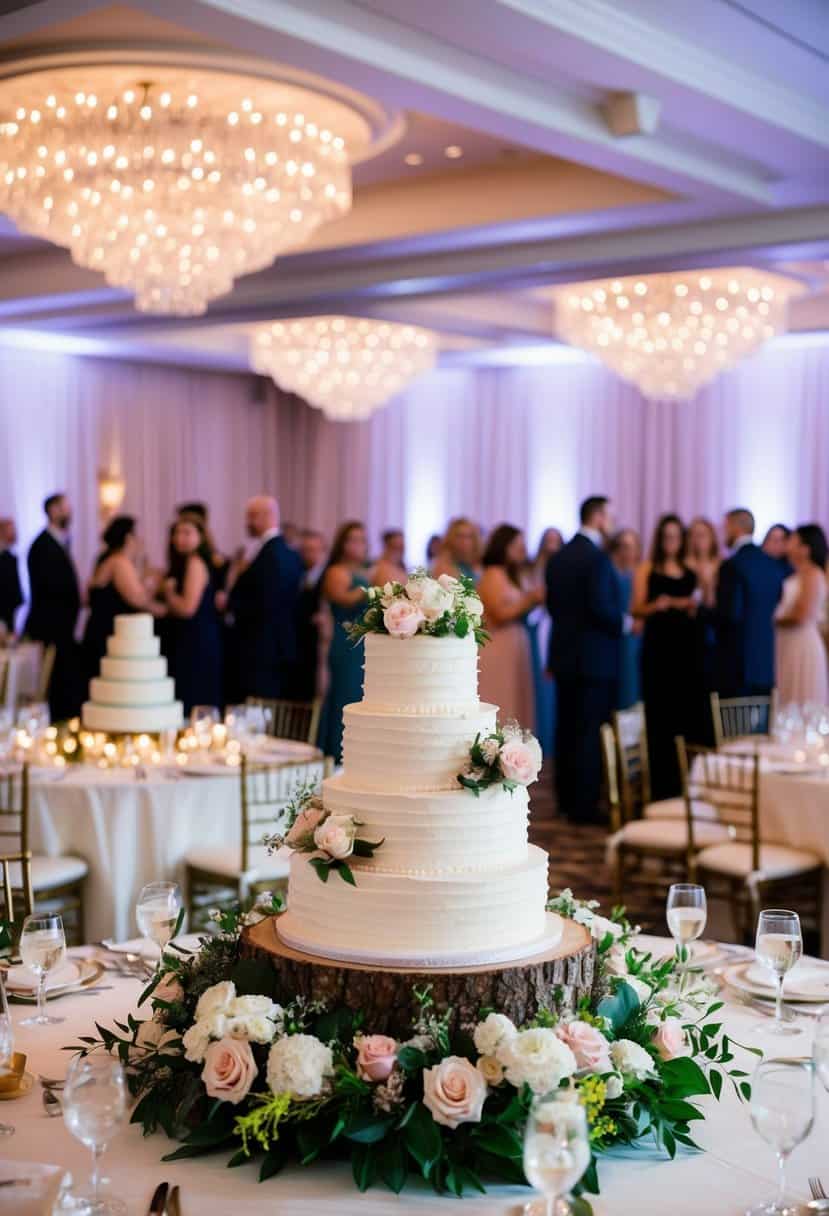
For an intimate gathering of 40 guests, expect costs to range from $5,000 to $10,000 depending on your location, venue, and personal choices. It’s all about balancing what matters most to you, whether that’s a particular venue, flowers, or the menu. Small weddings often allow for more personal touches, as you might prioritize quality over quantity.
You’ll find that tools like a wedding cost calculator can help you estimate expenses by adjusting for individual preferences. This approach lets you plan where to save and where to splurge, ensuring a beautiful day tailored to your vision.
Understanding Wedding Costs
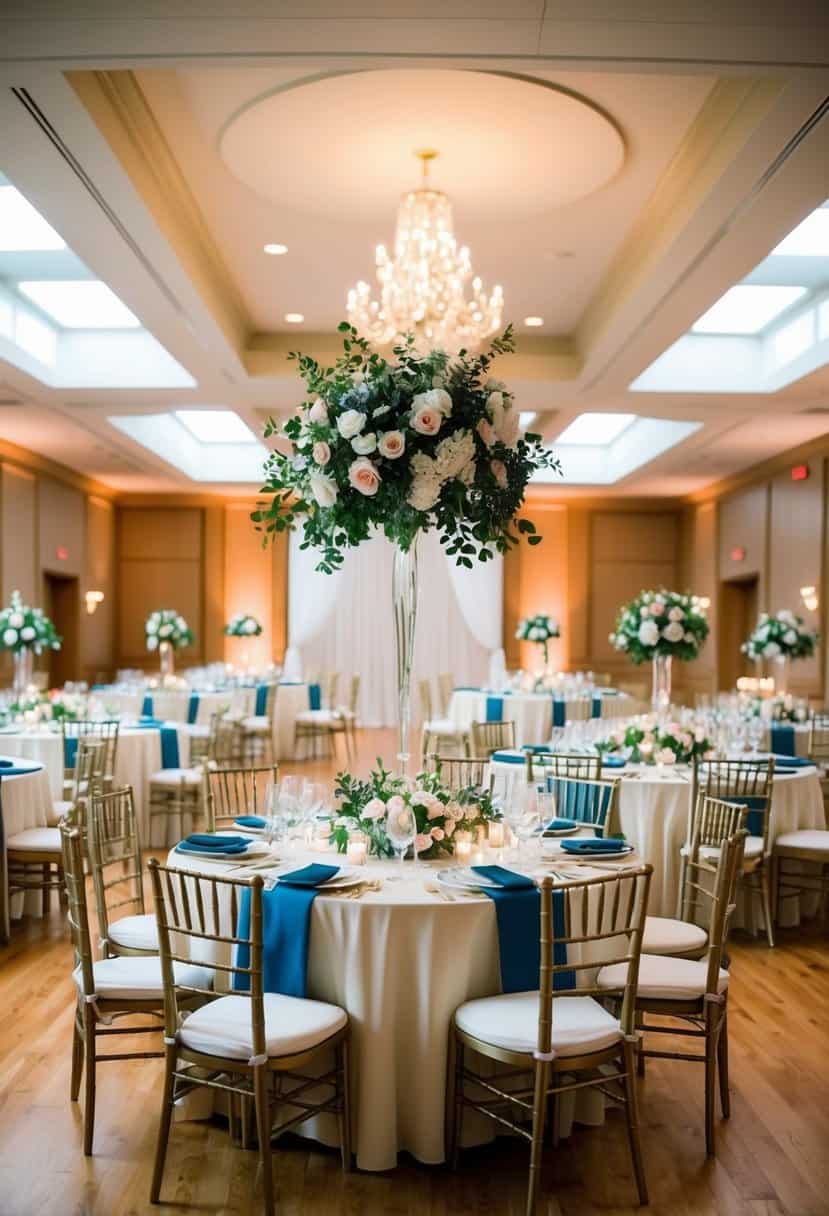
Planning a wedding involves a variety of costs that can differ widely based on location, guest count, and unexpected expenses. By examining average costs by state, analyzing cost per guest, and identifying hidden expenses, you can better prepare for your big day.
Average Wedding Cost By State
Wedding expenses vary significantly depending on where you live. States like New York and California often top the list with higher prices due to venue costs and demand. For example, the average wedding in New Jersey costs around $53,000, whereas in Iowa, it might be closer to $19,000.
These differences arise from factors like the price of vendors, location popularity, and regional wedding styles. Understanding these local variations helps you set a realistic budget based on your state.
Cost Per Guest Analysis
When planning for 40 guests, it’s helpful to figure out the cost per person. On average, a wedding guest can cost between $200 to $300. This includes food, drinks, table settings, and service staff.
Calculating your cost per guest allows you to manage and adjust menu choices, drink options, or decor extras. Knowing this upfront keeps your budget in check and helps you determine where to splurge or save.
Hidden Expenses to Consider
Hidden costs often catch couples by surprise. Common unexpected expenses include service fees, gratuities, and overtime charges. These add-ons can sneak into your bill and take you over budget.
Another hidden cost could be alterations for attire or unexpected weather plans such as tent rentals. Preparing for these potential surprises by setting aside an emergency fund can ease stress and make your planning process smoother.
Creating Your Wedding Budget

When planning a wedding for 40 people, creating a well-organized budget is key to ensuring everything goes smoothly. Using the right tools and methods, you can allocate your funds wisely to make the most out of your special day.
Essentials for Your Budget Tool
Begin with a reliable budget tool to track all your expenses. You can use a wedding budget planner like the Free Wedding Budget Calculator. These tools help you log your expected and actual expenses, so you can see where you stand at any time.
Make sure your budget tool includes key categories like venue, catering, attire, and photography. Using a spreadsheet or app can also allow for easy updates and adjustments as needed. This will help you stick to your budget more effectively.
Include a buffer for unexpected costs that might come up. Aim for about 5-10% of your total budget for these surprises. This can help alleviate stress as the big day approaches, ensuring you don’t overspend.
Allocating Funds Wisely
Allocating your funds properly is about setting priorities. For most weddings, costs like the reception venue, catering, and attire are key components. For example, the average wedding costs suggest spending about 7% of your budget on attire.
Adjust your spending to match what’s most important to you and your partner. You might decide to skip elaborate favors or create your own music playlist to save on costs.
Finally, stay flexible. If you find savings in one area, repurpose them to enhance another part of your wedding, like upgrading the menu or flowers. This approach will help you celebrate within your means while still creating a memorable experience.
Major Wedding Expenses
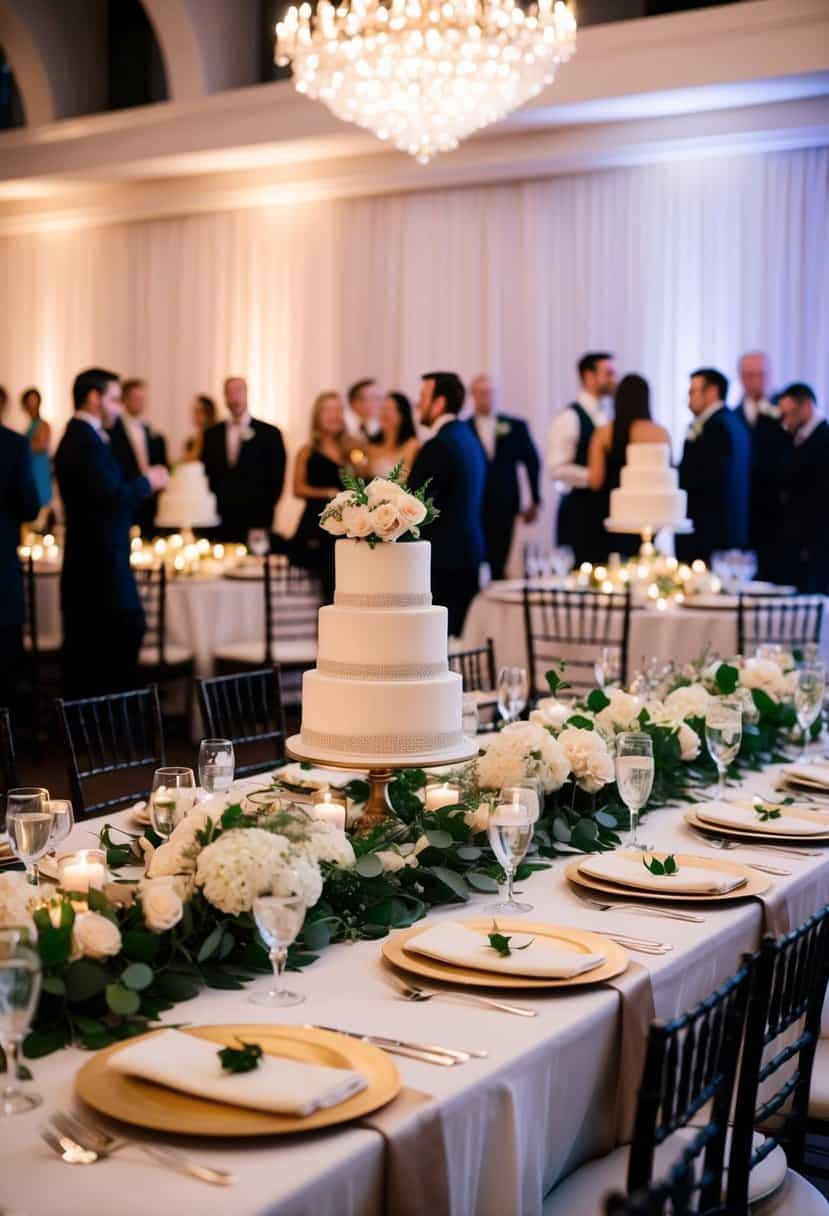
Planning a wedding for around 40 guests involves several key expenses. It’s important to consider the venue, food, attire, and decorations, as these elements will form a large part of your wedding budget.
Venue Considerations
Choosing the right venue is essential for setting the mood of your wedding. Small gatherings can be held in intimate spaces like boutique hotels, gardens, or even a family home. Venue costs often include basic rentals, such as tables and chairs. When comparing options, consider what is included in the package.
Pricing: Fees vary based on location and amenities. Popular options might charge per hour or offer a flat rate. It’s beneficial to compare several places to find the best fit and value for your budget. Since guest count is lower, you can decide on a smaller venue, reducing costs.
Catering and Cake
Catering is one of the largest wedding expenses. Many couples opt for a sit-down dinner, which is usually more expensive than buffet-style dining. When working with a caterer, ensure they can accommodate any dietary restrictions your guests may have.
Typical Costs: The average spend on catering can be hefty, but with fewer guests, serving more personalized dishes might still keep you within budget. Don’t forget the wedding cake, which can range in price. Consider alternatives like cupcakes or dessert tables to save and delight everyone.
Attire and Accessories
Your wedding attire is another key expense. The cost of a wedding dress, suit, or tuxedo can add up, along with shoes and accessories like jewelry. Look for sales or sample dresses for affordable options.
Budget Tips: Since outfits are worn only once, some choose rental options, which can significantly cut costs. This way, you enjoy high-quality attire without the hefty price tag. Accessories and alterations can also increase expenses, so budget accordingly.
Decorations and Floral Design
Decorations and floral arrangements transform any space. Choices here can greatly impact your wedding’s atmosphere. Opt for seasonal flowers to save money and ensure freshness.
Design Ideas: Simple centerpieces and minimalistic floral touches can make an elegant statement without overwhelming your budget. Rent items like lighting and decorative pieces instead of buying them. This allows you to achieve your vision without accumulating decor you’ll never use again.
Planning Details
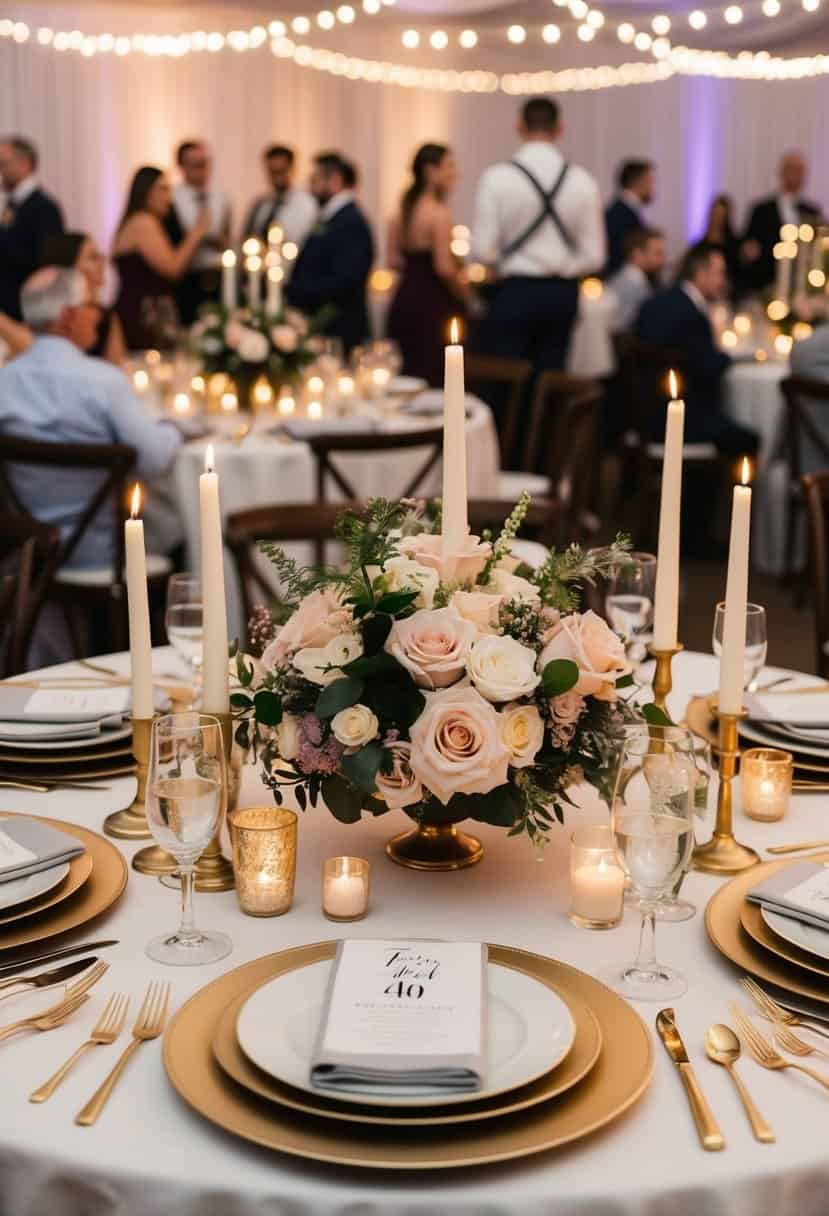
When planning a wedding for 40 people, you’ll need to focus on invitations, entertainment, and legal requirements. Each of these elements plays an important role in creating a smooth and enjoyable experience for you and your guests.
Invitation and Stationery
Your wedding invitations set the tone for your event. For a small gathering, you might opt for personalized designs that reflect your style. Look for local or online services that offer customizable options. This adds a personal touch without breaking the bank.
Think about what information you need to include. Besides the date and venue, mention any dress code or themes. Save-the-dates can be simple cards or even digital invites to save time and money.
Consider matching stationery items such as thank you cards and RSVPs. A coordinated look ties everything together nicely and creates a cohesive impression.
Music and Entertainment
Music is crucial for creating the right ambiance. Start by deciding if you want live music or a DJ. For a smaller gathering, acoustic musicians like a guitarist or a pianist might fit your vibe well.
Compile a playlist for key moments like the ceremony, cocktail hour, and reception. Be sure to include songs that mean a lot to you and your partner.
If you plan to hire entertainment, ask for recommendations and read reviews. Discuss your budget openly to ensure their services fit your needs without exceeding your wedding budget.
Interactive activities such as photo booths or games can also entertain guests without needing a massive setup.
Legal Requirements
To make your marriage official, you’ll need a marriage license. Requirements vary by state, but you generally need identification and sometimes a witness.
Find out where and when you need to apply for your license. Many places require you to submit your application in person, so plan accordingly.
Check if your officiant is certified to perform weddings in your location. It’s an essential part of ensuring your marriage is legally recognized.
Make sure all documents are completed accurately and submitted on time. Keeping these legal aspects in check will help the rest of your wedding planning go smoothly.
Finalizing the Details
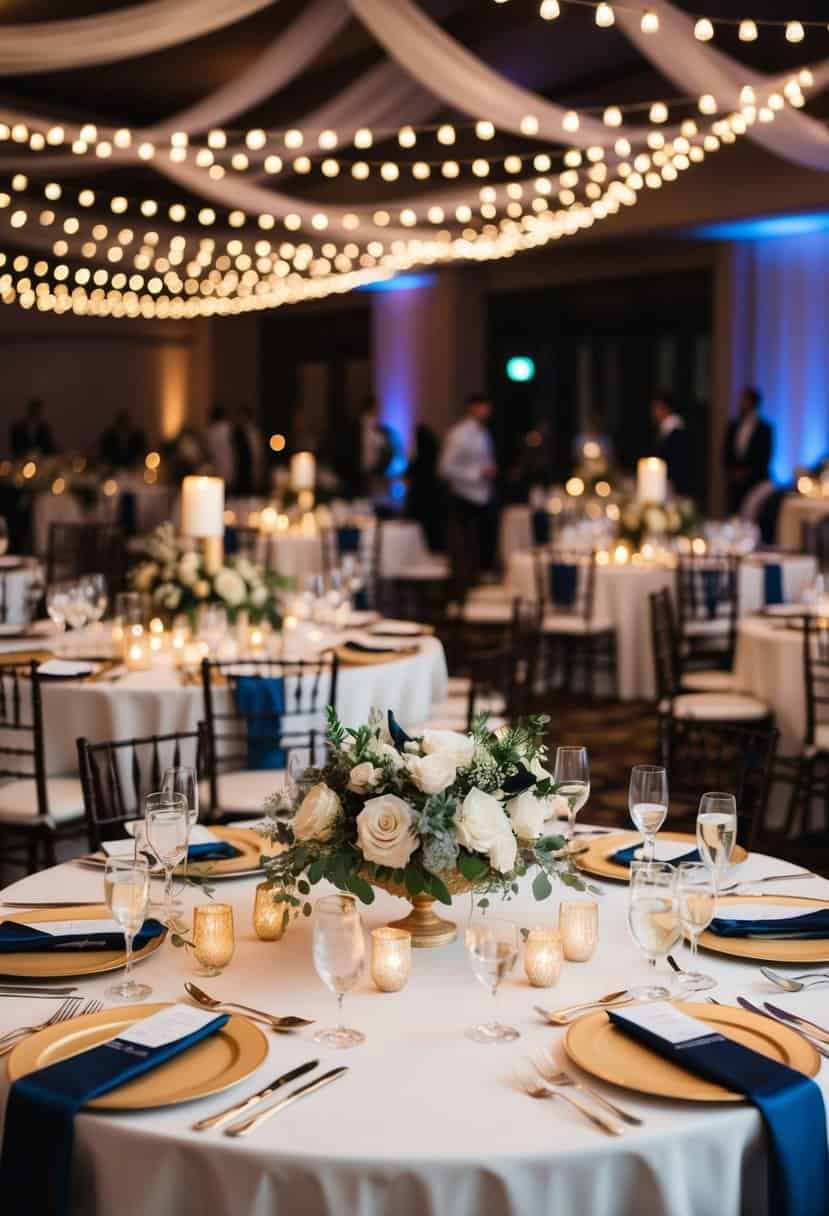
Getting through the final stages of wedding planning means focusing on essentials like insurance, hiring the right people, and choosing your rings. These parts are crucial for ensuring a smooth and memorable day.
Choosing Wedding Insurance
Wedding insurance can protect you from unexpected issues. It covers situations like a venue closing unexpectedly or a vendor failing to show up. Many policies include coverage for weather-related events and accidents, giving you peace of mind. Compare different plans and read the fine print to know what you’re paying for. Keep in mind that costs can vary based on location and coverage amount.
Hiring Your Planner and Vendors
Your wedding planner and vendors are key to making your day special. Start by researching potential candidates and checking their reviews. Make a list of questions to ask, like their availability, services offered, and previous work examples. Get contracts in writing to protect all parties involved. For a wedding with 40 people, you might need a smaller team, which can help manage both costs and logistics.
Selecting Rings and Bands
Selecting wedding rings and bands is both exciting and personal. When picking a design, think about your style and daily activities.
Visit jewelers to try different options in terms of metal type, stone, and thickness. Make note of any warranties or maintenance services offered.
Discuss your preferences with your partner to find rings that you both love and will feel comfortable wearing every day.


